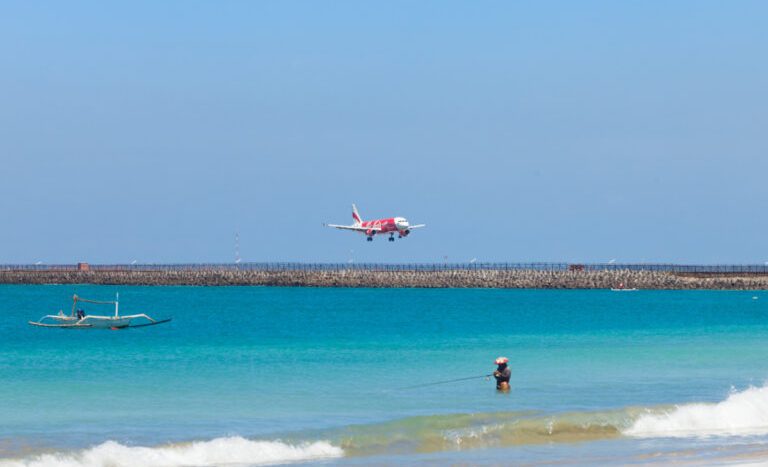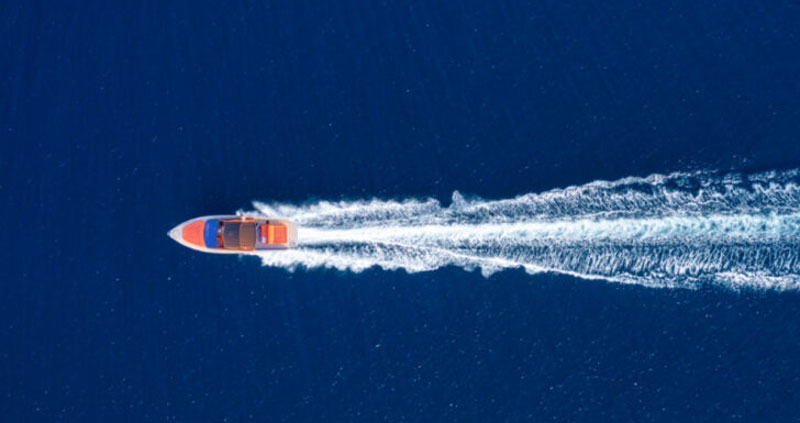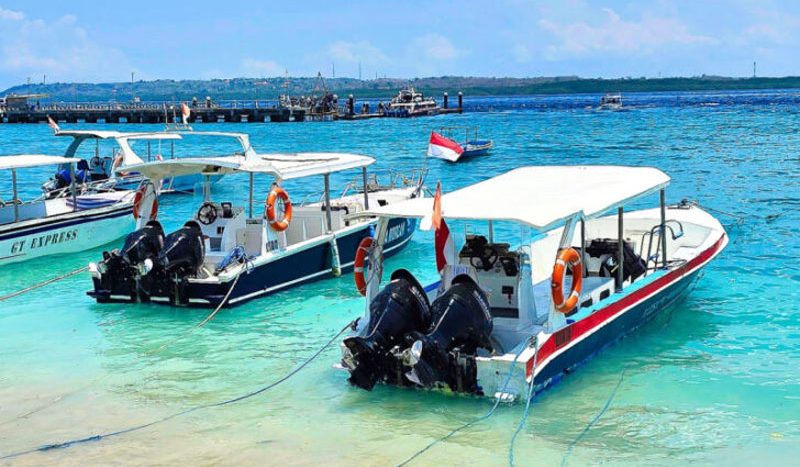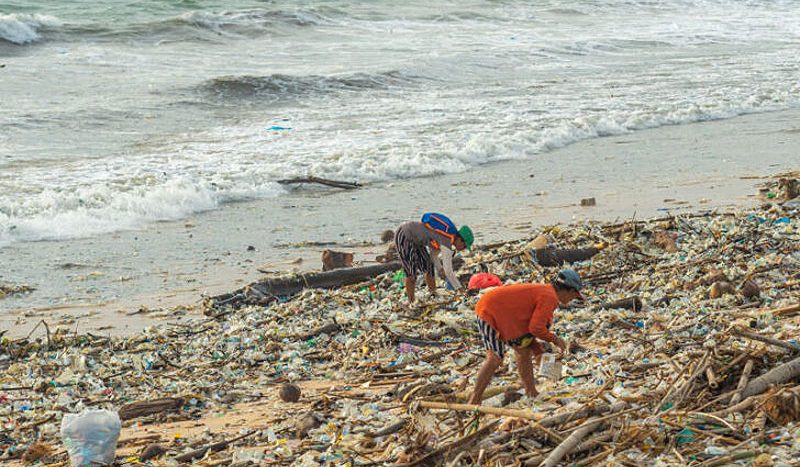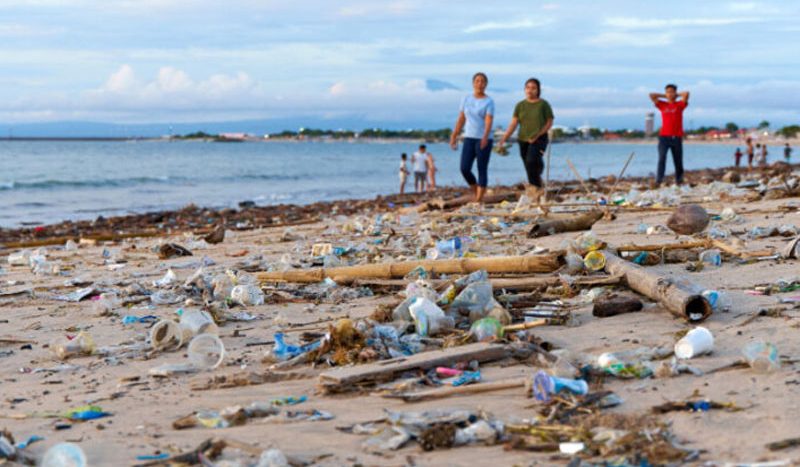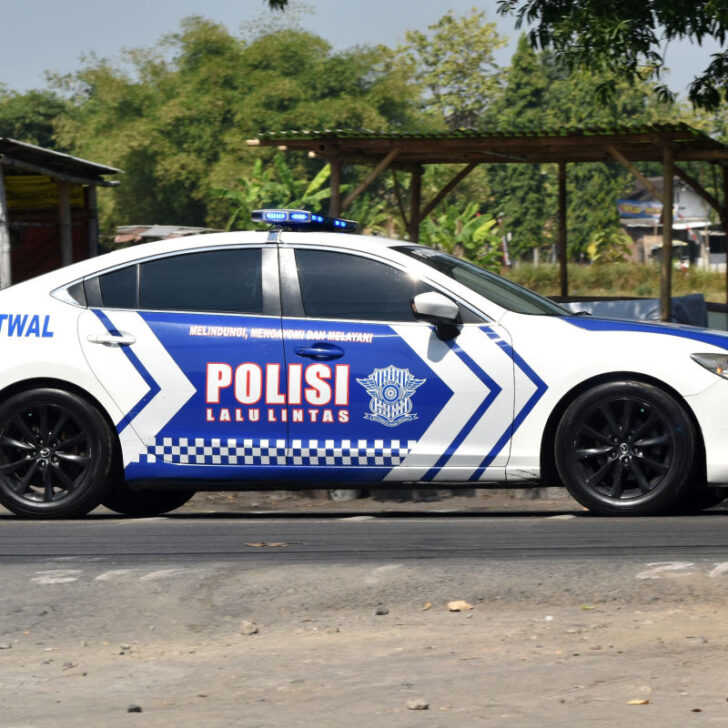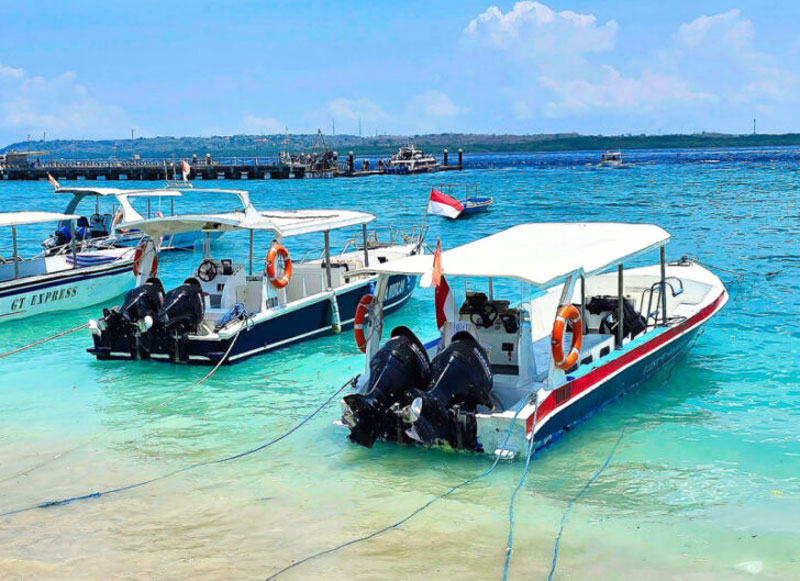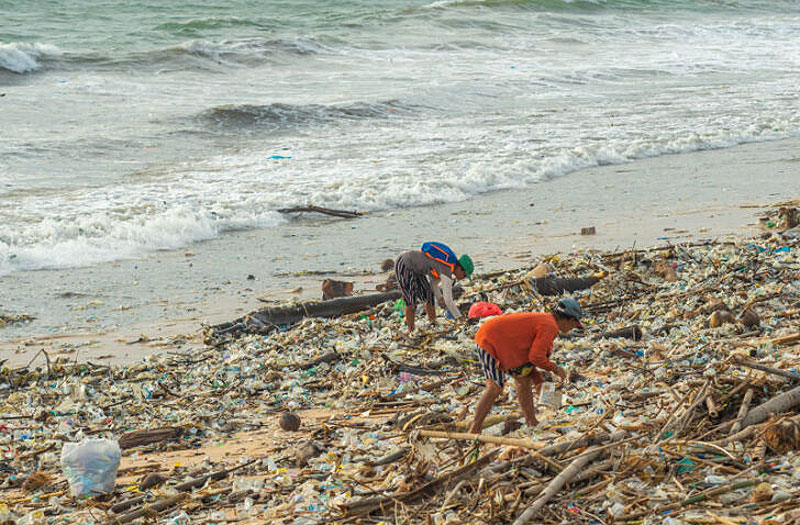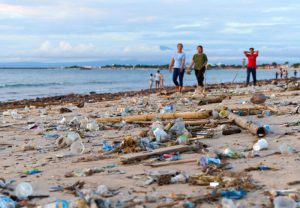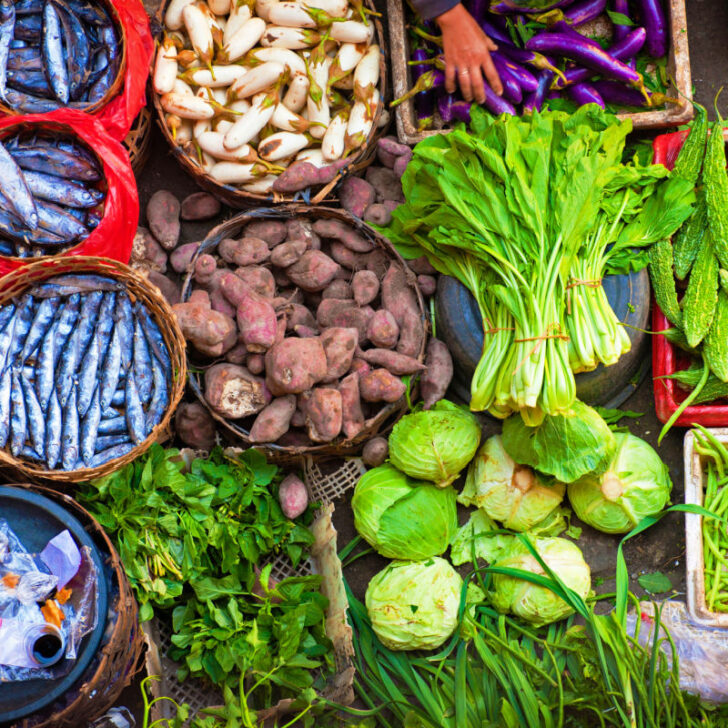Bali Airport Health Screening
Articles below are published by “The Bali Sun” https://thebalisun.com/
New screening measures have been brought into place at Bali’s I Gusti Ngurah Rai International Airport in anticipation of the spread of Human Metapneumovirus (HMPV).
The virus, which is not fatal, is a respiratory virus that triggers a mild infection similar to that of the common cold.
Bali Airport has installed a series of thermal scanners in the arrival area of the international terminal building. The General Manager of I Gusti Ngurah Rai International Airport, Ahmad Syaugi Shahab, spoke to reporters to explain steps that management is taking to keep travelers safe as they transit through the airport and into Bali.
Shahab explained, “We have installed three thermal scanner units, two at the international arrival terminal and one at the domestic arrival terminal. We are also coordinating with the Health Quarantine Center (BBKK) to anticipate potential suspect cases. If there are suspect passengers, we will hand them over to BBKK for further processing, including isolation at the BBKK clinic.”
Speaking separately, the Head of the Airport Authority (Otban) for Bali, Cecep Kurniawan, added that his team is still waiting for official direction from the Indonesian Ministry of Health regarding further procedures.
He noted, however, that the experience of the COVID-19 pandemic has provided important lessons in anticipating the spread of infectious diseases for airport management.
Kurniawan explained, “We have taken initial steps based on the experience of Covid-19 and Mpox. Equipment for surveillance, including thermal scanners, has been installed. God willing. Hopefully, it will not (spread) because it will affect the economy.”
In further statements issued by the Head of the Communication and Legal Division at I Gusti Ngurah Rai International Airport, Gede Eka Sandi Asmadi stated that in addition to installing thermal scanners, the airport has also prepared to handle potential cases with strict health protocols.
He shared, “We have prepared three thermal scanner units and coordinated with BBKK. If there are passengers who are detected as suspects, we will conduct further examinations before referring them to the hospital. We urge the public not to panic and to maintain their health.”
The Head of the Bali Health Office, Dr. I Nyoman Gde Anom, has urged the public not to panic when hearing the news that cases of Human Metapneumovirus (HMPV) are on the rise globally.
He noted that HMPV has been present in Indonesia for some time but has not been detected in Bali. Dr Anom confirmed that HMPV has not been listed as a global disease of concern by the World Health Organisation.
Dr. Anom did confirm that the variant of HMPV that is spreading in China is seemingly more infectious than other variants but that this is no cause for concern.
He noted, “The one in China is indeed spreading quickly, but the similar one has not entered. But if it is associated with the virus, what is it called? It has existed for a long time. It’s just that the similar one that is currently in China has not entered Indonesia.”
He called for the public, tourists included, to act in alignment with standard health protocols for colds and flu should they become ill in the coming weeks.
Dr. Anom said: “If you are sick if you have to go out, wear a mask, still wear a mask when going out in crowded places or when you are weak, but we do not require it.”
Passengers arriving in Bali must also have the SATUSEHAT Health Pass app downloaded on their smart device, as has been the case since borders opened after Covid-19.
The app may not be checked by airport staff, but in light of the increased health protocols in place, more checks are underway, with a focus on arrivals from China and Malaysia, where the latest strain of HMPV has been detected.
Main Article: Bali Airport Health Screening
Indonesian Government Urged To Do More To Safeguard Bali Tourists
The Bali Provincial Government is being urged to take more action to protect tourists while they are visiting the island.
From tourist deaths due to falling trees at top attractions to a tourist getting seriously assaulted by a taxi driver on New Year’s Eve, Indonesian politicians are calling the province to account.
The Deputy Chairperson of the Commission VII of the Indonesian House of Representatives, Chusnunia Chalim, is calling on the government to step up and do more to protect tourists and the image of Bali tourism around the world.
Chalim is currently the Vice Governor of Lampung and has spoken to reporters about her concerns about recent incidents in Bali Province.
Chalim explained to reporters, “We hope that all tourism stakeholders truly prioritize safety and security aspects.
Speaking to the media this week, the Head of Public Relations of the Bali Police, Senior Commissioner Pol. Jansen Avitus Panjaitan explained that he and his teams are working around the clock to locate the man in question.
He shared, “Based on the victim’s report and statement, the Jatanras Unit team pursued the perpetrator, who is suspected of being an online motorcycle taxi driver.”
Tourists traveling alone at night are especially encouraged to book motorcycle taxi services using online apps like Grab and GoJek and to set up all of the available safety and security features on the application, including sharing a live location with a trusted person.
This is not only the responsibility of one party, such as the government at all levels from ministries, provincial governments, to city governments, but also involves security forces and the community.”
She added, “Tourism is a complex sector that involves the interests of many parties.” She has called for more tourism police to be deployed across Bali to help keep tourists safe.
While there is a tourist civil service police unit in effect, they are not on patrol 24/7 and are limited in where they can operate patrols at any given time. They have mostly been tasked with making sure tourists have paid their Bali Tourism Tax Levy.
Chalim, who is often known by her nickname Nunik, told reporters, “Some countries already have tourism police.
Well, this is not implemented consistently in Indonesia. If tourism police already exist in certain areas, their number and presence need to be increased, especially in areas with great tourism potential.”
She did praise Bali for efforts that are already in place, and it must be noted that crime against tourists and foreigners in Bali is markedly lower than in many of the world’s top travel destinations.
Chalim told reporters, “The security factor is very important, in addition to the 3A concept – access, amenities and attractions. The safety aspect of tourists must be of primary concern.”
She concluded, “One of the main challenges is security, especially in tourist areas. Security needs to be given more attention, especially when we welcome guests from abroad or at special moments.
Tighter protections must be implemented so that tourists feel safe and comfortable.” Chalim’s comments come, in part, as a response to the news that a 33-year-old Chinese tourist was seriously sexually assaulted by a motorcycle taxi driver on New Year’s Eve. The woman, known by her initials YA, hailed a motorcycle taxi after a night out with her friends to celebrate the new year.
Traveling as a part of seven, four of YA’s friends were able to travel back to their rental villa in a taxi, while YA hailed the services of a motorcycle driver who was passing and dropping tourists off at the destination she was leaving from.
As Bali sets a target to welcome 6.5 million international arrivals in 2025, in addition to millions of domestic tourists, it is clear that more needs to be done to level up safety and security for tourists across top resort destinations and across the island as a whole.
Water Taxi Will Connect Tourists From Bali Airport To Nusa Penida
In the coming months, a series of new water taxi services will be available directly from Bali’s I Gusti Ngurah Rai International Airport.
The plan is to help tourists travel between the airport and their hotel as quickly as possible, improving the tourist experience and reducing the amount of traffic congestion on the roads.
According to the Indonesian Ministry of Transportation, the new water taxi service will connect tourists directly from the airport to Bali’s most popular destinations, including the outlying island of Nusa Penida.
In an Instagram post, the Ministry of Transportation wrote, “Landing at Ngurah Rai Airport, Bali, then where to go? There are many popular tourist attractions on the Island of the Gods.”
“One of the easiest ways, besides the land route, was conveyed by Minister of Transportation Dudy Purwagandhi, namely the sea route via water taxi service. From Ngurah Rai, tourists can use this service to go directly to Sanur, Seminyak, Kuta, and Nusa Penida.”
“This route is shorter than the previous one; for example, when tourists going to Nusa Penida had to cross by speed boat from Sanur Harbor.”
The Ministry added, “Minister of Relations Dudy Purwagandhi has asked the Directorate of Maritime Relations to review this water taxi service from Ngurah Rai Airport directly to Sanur, Seminyak, Kuta, and Nusa Penida.”
The routes will connect Bali’s I Gusti Ngurah Rai International Airport to Tanjung Benoa too. While there is no set date for the launch of this new water taxi service, the boats have already been assigned to the initiative.
Since I Gusti Ngurah Rai International Airport’s runway is built on land reclaimed from the sea, the airport is surrounded by ocean on two sides.
The west side of the airport runway provides easy access for ocean taxis to travel towards Kuta, Seminyak, and Canggu, and the east side of the airport building connects to Benoa Bay, the body of water that the Bali Mandara Toll Road travels over.
There are hopes that this new water taxi initiative will totally change the way in which tourists travel onwards from Bali Airport. Traffic congestion around Bali Airport has been an issue for years; leaders are keen to implement new ways to help keep tourists moving around the island efficiently.
This is, in part, why the new Bali Urban Rail Network is being constructed. The public transportation metro line will also connect Bali Airport with destinations like Kuta, Seminyak, and Sanur, though it will not be operational until later this decade.
The ocean taxi service from Bali Airport is one of a range of ocean taxi services that will be launching in 2025, in addition to the widely available fast boat transfers between main island Bali, Nusa Penida, Nusa Lembongan, Nusa Ceningan, the Gili Islands and Lombok.
In early 2025, there will be a water taxi service that will operate between Canggu and Nusa Dua, with a possible stop at the airport.
Speaking in December 2024, the Regent of Badung Nyoman Giri Prasta explained, “God willing, between January or February, we will build a sea toll road so that tourists on the coast (Canggu-Berawa) will no longer use the main road but sea transportation.”
He added, “There will be a ship docked at the airport. Guests who arrive will be escorted to the front of their hotel (in Canggu-Berawa).”
“The current priority is from the airport to Canggu and to Nusa Dua. The specific type of ship will be announced later. Maybe a large boat with cooperation from a third party.”
Water taxi services, including GoBoat’s services, are already in operation. Operating over 300 departures within Bali and Lombok every day, water taxi services between Canggu and Uluwatu have proven to be a huge time saver for tourists.
The service runs between Canggu’s Nelayan Beach and Uluwatu’s Padang Padang Beach. GoBoat also runs a water taxi shuttle service between Canggu and Kedonganan Beach in Jimbaran.
Clean Tourism Movement To Launch To Improve Bali’s Beaches
The Indonesian Ministry of Tourism will accelerate the rollout of the Clean Tourism Movement 2025 in Bali.
The government-run program, which is already in operation in destinations like Lake Toba, Borobudur Mandalika, and Labuan Bajo, will help ensure that Bali’s top tourism destinations and attractions are clean and hygienic for visitors.
The response from the government comes after tides upon tides of plastic waste have been washing up on Bali’s most popular family-friendly beaches, from Kuta to Jimbaran.
Speaking to reporters from Kuta Beach during a community clean-up operation, top civil servant for the Minister of Crisis Management for the Ministry of Tourism, Fadjar Hutomo, explained that, in the eyes of the government, the seasonal trash tides have little to do with ‘less than optimal‘ waste management in the province.
Hutomo explained, “Geographically, Indonesia is currently experiencing a west wind season, and Bali is no exception. So, the garbage at Kuta Beach is garbage sent from the sea due to the season. Not because of the non-optimal waste handling,”
However, he did not deny that it is the responsibility of the national and provincial governments to improve the situation.
Hutomo explained, “Of course, waste handling is a part or domain of the Ministry of Environment, [and now] this correlates with the Ministry of Tourism. It is very significant because this is related to waste handling in tourism destinations, which has become an issue from year to year.”
Speaking to the media during the Kuta Beach Clean Up this weekend, the Minister of Environment, Hanif Faisol Nurofiq, explained, “We will supervise this shipment of waste in Kuta Beach until April. We will intervene with the support of tools and funding if necessary.”
Other top political figures also attended the Kuta Beach Clean Up, including the Regent of Badung and soon-to-be Deputy Governor of Bali, Nyoman Giri Prasta, the Indonesian Minister of Tourism, Widiyanti Putri Wardhana, and the Minister for Food of the Republic of Indonesia, Zulkifli Hasan.
Hasan praised the collective effort of the community and the authorities in coming together to respond to the recent tides of plastic waste that had been washed up in Kuta and around the central southern coast.
He shared, “I know that Bali has a strong philosophy, the Tri Hita Karana Philosophy, but of course, it cannot be done alone. As an archipelago with a very wide coastline, of course, cooperation is the key to maintaining our place.”
“This waste is an extraordinary problem if not addressed. Waste will disrupt the marine environment, disrupt public health, of course, disrupt tourism, and of course, disrupt food self-sufficiency because later there will be more waste than fish.”
Late last week, as a high tide receded on Kuta Beach, thousands of small fish were stranded on the shoreline, having been tangled in the ocean debris that had washed up on the beach.
Regent Prasta shared his gratitude for the united front and especially praised the Environment and Cleanliness Service (LHK) for their dedication.
He explained, “The existence of this activity reflects that the state is present in the midst of society in overcoming the problem of waste. The Badung Regency Government remains committed to overcoming and cleaning up waste in tourist destinations in Badung Regency.”
He concluded, “Once again, thank you to all parties, both from the TNI/Polri and environmental activists who have been maintaining the cleanliness of Kuta Beach.”
It was not only on Kuta Beach, where communities and authorities came together to clean up tons of plastic trash and ocean debris but on Kedonganan Beach and Jimbaran Beach, too. Led by environmental NGO Sungai Watch, the Emergency Clean Up ran in shifts over Saturday, 4th, and Sunday, 5th of January.
Speaking to reporters, Sungai Watch Community Manager Luh Putu Anggita Baruna Putri explained that the organization had connected 25 tons of waste between 24th – 31st December and that over the weekend, over 2,000 volunteers had come out to help.
She explained, “We also had a chat with local people here, around the last 30 years. This year, the garbage was the worst. So we really need the government’s help to implement the rules and seriously handle the waste problem because we can’t do clean-ups continuously every year.”
Indonesian Government Plans To Stop Food Imports
In a bid to promote national self-sufficiency, the Indonesian Government will reduce its reliance on food imports.
In 2025, the government will stop the importation of some of Indonesia’s most important commodities in order to achieve national food self-sufficiency by 2029.
In a statement issued from Bandar Lumpung, the Indonesian Minister for Food, Zulkifli Hasan, explained, “Food self-sufficiency has been the government’s top priority program since the initial target achievement in 2029, but this has been advanced to 2027. So everyone must work hard and commit to realizing this.”
He explained that the only way to achieve national food self-sufficiency would be to reduce dependency on food imports, starting in 2025.
Minister Hasan continued, “We decided not to import rice next year so that farmers can plant a lot of rice, and the price in the market is good. Then, the government will not import salt because farmers’ salt production is sufficient. Then not to import corn for animal feed and not to import sugar.”
He explained, “So there are four commodities that we will not import next year. Later, there will be other commodities whose production will be optimized domestically so that it benefits us.”
“So far, we have imported food up to 30 million tons; our lives depend on imports of wheat, sugar, rice, fruits, and coffee, and now it’s time for food self-sufficiency, then water self-sufficiency, energy, and downstream that we are aiming for in the end.”
The Minister pledged his support for the agricultural sector and agreed that the industry has been left to fall behind in many ways.
He promises to work closely with President Prabowo Subianto to develop a series of high-priority programs that will support agricultural development at the provincial, district, and city levels.
He concluded, “All must be a compact team and collaborative because this is the time to build national food self-sufficiency and to leave dependence on food imports.”
Speaking at the press conference, the Minister of Trade, Budi Santoso, shared, “Actually, not all of our food products are imported, but some are produced domestically as well. And there are also exports of agricultural products abroad.”
He spoke of Indonesia’s high-value exports, including Crude Palm Oil, which, between October 2024, had an export value of USD 22.92 billion, arabica and robusta coffee worth USD 1.28 billion, black pepper worth USD 232.79 million and cloves worth USD 222.97 million.
Loganberries, raspberries, blackberries, oranges, papaya, and guava are all mass exported from Indonesia, as well as bananas, tobacco, and coconuts.
Minister Santoso explained, “With a good export trend in the last five years, from 2019 to 2023, this could be a form of Indonesia’s readiness to achieve food self-sufficiency if food products can be managed professionally.”
President Subianto told the media, “Our efforts for food and energy self-sufficiently are the basis of sovereignty. Once we guarantee food self-sufficiently and God willing, in a few years, we will be heading towards energy self-sufficiently, it must be.”
What does this mean for tourists in the short and long term? In the immediate future, nothing much will change in terms of food availability in Bali.
Over time, depending on what food imports and products are stopped, tourists and ex-pats may find it harder to find their favorite brands of basic food products that are grown and produced outside of Indonesia.
There will be an increasing focus on food and dining experiences across Bali that showcase the island’s incredible local produce and culinary heritage.
The ban on specific food imports over the next 4-5 years may also help protect some of Bali’s fast-disappearing rice paddies, food forests, and agricultural landscapes.
As Indonesia will require more fertile land to produce more food to support its population of over 270 million people, legislation may be introduced that will make it harder for developers to construct properties on viable agricultural landscapes.





